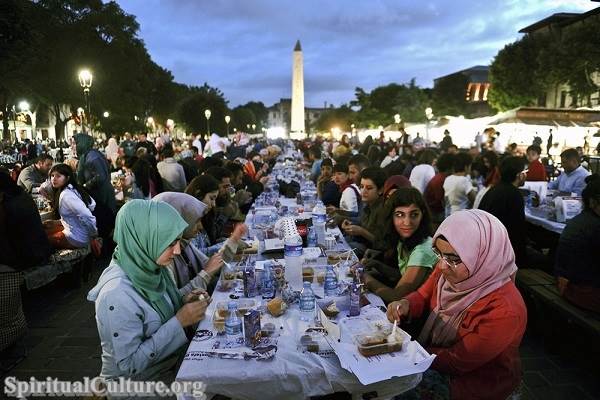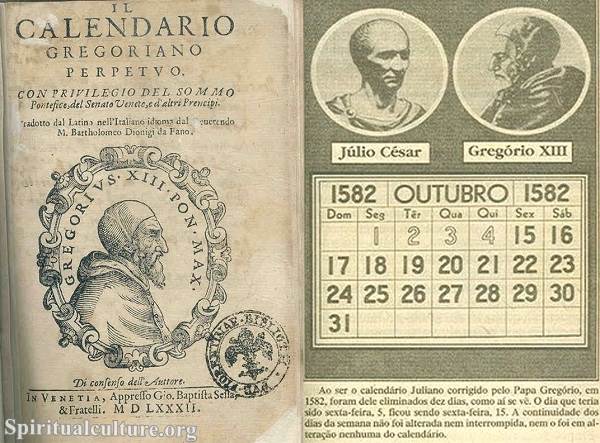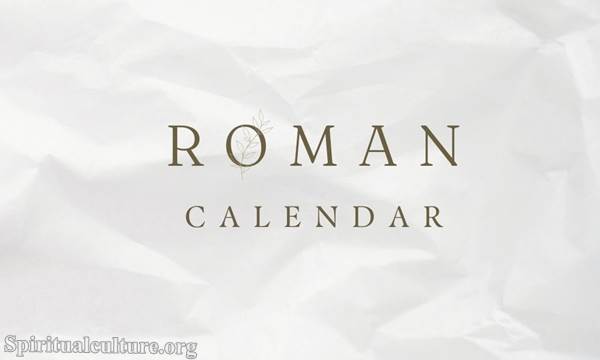Ramadan is a significant and sacred month for Muslims around the world. Each year, millions of faithful Muslims observe Ramadan, which is characterized by fasting, prayer, reflection, and community. Spanning between 29 to 30 days, Ramadan is not just a period of fasting but a time of spiritual growth, deep connection with Allah, and increased compassion toward others.

In this article, Spiritual Culture explores the multifaceted aspects of Ramadan, its rich history, the observances associated with it, and the broader community implications, all under the unifying theme of “What is Ramadan?”.
The Significance of Ramadan in Islam
Historical Context of Ramadan
The historical foundations of Ramadan are deeply intertwined with the early days of Islam and the life of the Prophet Muhammad. Ramadan is the ninth month of the Islamic lunar calendar, also known as the Hijri calendar, which consists of 354 or 355 days. The month of Ramadan commemorates the first revelations of the Quran given to the Prophet Muhammad, which began in 610 CE when the Angel Gabriel appeared to him in the Cave of Hira. This pivotal event is known as Laylat al-Qadr, or the Night of Decree, which is believed to occur during the last ten days of Ramadan and is considered to be more virtuous than a thousand months.
The significance of Ramadan extends beyond its historical context; it embodies a collective identity among Muslims. This month not only serves as a reminder of the spiritual journey of the Prophet but also reinforces the communal aspects of the faith. The first community of Muslims, facing persecution and hardship, was able to find solace, guidance, and strength through the teachings of the Quran. Thus, Ramadan became a time for Muslims to reflect upon their faith, seek forgiveness, and renew their commitment to the teachings of Islam.
The Quran itself emphasizes the importance of Ramadan in Surah Al-Baqarah (2:183), which states: “O you who have believed, decreed upon you is fasting as it was decreed upon those before you that you may become righteous.” This verse highlights the core objective of fasting during this month: to develop Taqwa, or God-consciousness.
Spiritual Significance
In addition to its historical implications, Ramadan fosters a profound spiritual significance. It is a time when Muslims focus on their relationship with Allah, intensifying their prayers and worship. The act of fasting serves as a means of spiritual purification, encouraging believers to detach from worldly desires and concentrate on their spiritual growth. The month invites Muslims to engage in introspection, reassessing their values, actions, and contributions to society.
During Ramadan, adherence to the teachings of the Quran becomes especially pronounced. Muslims are encouraged not only to read the Quran but also to understand its meanings and apply its teachings in their daily lives. Many aim to complete the entire Quran during the month, dedicating time to both study and reflection. This period becomes not just a designated time of worship but a cornerstone for a believer’s relationship with their faith.
Dates and Observance of Ramadan
Lunar Calendar and Ramadan Dates
One of the unique aspects of Ramadan is its alignment with the lunar calendar. The Islamic or Hijri calendar consists of twelve months based on the moon’s cycles, which creates a difference of approximately 10 to 12 days shorter than the Gregorian calendar, the calendar most widely used in the world today. As a result, the timing of Ramadan shifts each year.
The beginning of Ramadan is determined by the sighting of the new moon. Traditionally, local mosques and Islamic organizations play a vital role in confirming the commencement of Ramadan, creating a sense of community. Once the new crescent moon is sighted, the announcement is made, and festivities begin.
For example, in 2024, Ramadan is expected to start around the evening of March 10 and last until approximately April 8, though variations might occur in different parts of the world, depending on the local sighting of the moon. This lunar alignment often means that Ramadan can fall during various seasons over the years, impacting the duration of daily fasts based on the length of daylight.
Variability in Ramadan Duration
The duration of Ramadan can vary, lasting either 29 or 30 days, based on moon sighting practices. This variance emphasizes the importance of community engagement, as local Islamic organizations collaborate to confirm the official start and end of Ramadan. This communal observance fosters unity among Muslims in a particular region, as they come together to break their fast after a month of dedication and devotion.
After the lunar month concludes, the end of Ramadan is marked by Eid al-Fitr, a significant festival celebrating the conclusion of fasting. This celebration not only symbolizes the personal accomplishments of individual Muslims but also the collective spirit of the Muslim community. It highlights the importance of togetherness, as families and friends gather to commemorate the occasion.
Fasting Practices During Ramadan
Types of Fasting Required
Fasting during Ramadan, known as Sawm, is one of the Five Pillars of Islam, which are foundational acts that underpin a Muslim’s faith and practice. The fast requires abstaining from food, drink, smoking, and sexual relations from dawn (Fajr) until sunset (Maghrib). However, the essence of fasting transcends merely refraining from physical consumption; it also encompasses abstaining from negative behaviors, such as lying, gossiping, and anger.
This holistic approach to fasting encourages Muslims to cultivate a stronger sense of self-control and discipline in their spiritual and social lives. The Quranic injunction of fasting includes exemptions for specific groups, ensuring that the practice remains inclusive. Children, the elderly, individuals suffering from chronic illnesses, and women who are pregnant or breastfeeding are exempt from fasting but are encouraged to provide compensation in the form of charity or additional fasting later.
Daily Fasting Schedule
The daily fasting routine during Ramadan begins with Suhoor, the pre-dawn meal. This meal is important for fortifying oneself before the fast commences, typically eaten before the Fajr prayer. Many Muslims take this opportunity to have nutritious foods, staying hydrated and consuming energy-rich items to help them sustain energy levels throughout the day.
Once the sun rises and Fajr begins, fasting commences, and Muslims must abstain from any consumption until sunset. Iftar, the meal for breaking the fast, is typically observed immediately after the Maghrib prayer, which is performed right at sunset. The Iftar tradition often begins with the consumption of dates and water, following the Sunnah (practice) of the Prophet Muhammad. This is traditionally followed by a more substantial meal shared with family and friends.
Community aspects are particularly pronounced during Iftar, where mosques and community centers organize open Iftar events. These events invite individuals from all walks of life, fostering inclusivity and fellowship while reinforcing the themes of brotherhood and generosity inherent to Ramadan.
After Iftar, many Muslims engage in additional Taraweeh prayers, which are special nightly prayers performed during Ramadan. Taraweeh prayers involve reciting portions of the Quran, further encouraging the recitation and memorization of the holy text. This ritual deepens the spiritual experience of Ramadan as the recitation resonates through the community.
Spiritual Aspects of Ramadan
Importance of Prayer During Ramadan
Prayer, or Salah, is an integral part of the Muslim faith, but during Ramadan, the significance of prayer is heightened. In addition to the obligatory daily prayers, Muslims are encouraged to perform additional units of prayer during the night, known as Taraweeh. These prayers involve longer passages of Quranic recitation and are held in congregation at mosques, creating a strong sense of community among worshippers.
The increased emphasis on prayer and the recitation of the Quran allows individuals to strengthen their connection to Allah. Many Muslims aim to read the Quran in its entirety throughout Ramadan, using new moon sightings and nightly prayers as opportunities for reflection and discussion of the text’s meaning. This commitment to reading, contemplating, and acting upon the Quran’s teachings reinforces a commitment to faith and spirituality among Muslims.
Moreover, Ramadan serves as a time to reconnect with family and friends through prayer and discussion of spiritual matters, reinforcing the role of faith in building strong relationships and fostering joy and gratitude for the blessings in their lives.
Reflection and Self-Discipline
Ramadan is not solely a physical act of fasting; it represents a time for deep reflection and self-discipline. While the absence of food and drink challenges the body, the spiritual significance encourages the development of inner strength. During this month, Muslims take the time to evaluate their lives, reflect on their actions, and seek repentance for past mistakes.
This period of introspection can lead to personal growth and the establishment of new habits. Muslims are encouraged to engage in positive behaviors, such as volunteering for charitable causes, helping their neighbors, and supporting those in need. The increase in acts of kindness and self-improvement during Ramadan fosters a sense of community and camaraderie as people support each other in their endeavors to become better individuals.
Furthermore, Ramadan invites individuals to explore their spirituality, encouraging personal growth and self-discipline. By recognizing their weaknesses and striving to improve themselves, Muslims take steps toward a more harmonious life. This sense of growth is fundamental to the overarching goal of Ramadan: achieving Taqwa, or a heightened consciousness of Allah.
Community and Charity During Ramadan
Acts of Charity: Zakat and Sadaqah
Charity embodies a fundamental principle in Islam, and its significance is magnified during Ramadan. Acts of charity take two primary forms: Zakat, which is obligatory, and Sadaqah, which is voluntary. Zakat is a religious obligation for Muslims who meet specific criteria, requiring them to give away 2.5% of their savings to the poor and needy. This obligation is fulfilled by many Muslims during Ramadan, as it is believed that the rewards of charity are multiplied during this month.
Community Iftar and Gatherings
The essence of Ramadan thrives on community engagement, which is encouraged through various acts and celebrations. One of the most heartwarming aspects of Ramadan is the community Iftar gatherings. Many mosques and community centers host large Iftar meals, inviting everyone, regardless of their background, to join in the breaking of the fast. These communal meals foster unity, creating a sense of belonging and kinship among participants, as they come together to share food, stories, and fellowship.
These gatherings also promote cultural exchange and understanding, as Hindus, Christians, and those of other faiths often participate, underscoring the inclusive nature of the spirit of Ramadan. Shared experiences during Iftar help bridge gaps between different backgrounds, fostering dialogue and understanding about Islamic traditions and fostering relationships in diverse communities.
Eid al-Fitr: The Celebration After Ramadan
Traditions of Eid al-Fitr
The end of Ramadan is marked by the joyous celebration of Eid al-Fitr, known as the “Festival of Breaking the Fast.” This significant festival celebrates the achievements of the month and the collective commitment of individuals to strengthening their faith. Eid al-Fitr begins with a special prayer service at the mosque, where Muslims gather in large numbers to perform the Eid prayer, expressing gratitude for the blessings received during Ramadan.
Eid al-Fitr is a vibrant and festive occasion characterized by colorful clothing, shared feasts, and lively gatherings. It is customary for Muslims to wear new or their best clothing, and many children receive gifts, money, or treats as part of the joyous celebration. Sweet dishes, such as Maamoul (filled cookies), Baklava, and a variety of traditional sweets, are commonly prepared and shared among families and friends.
Importance of Community during Eid
Eid al-Fitr serves as a poignant reminder of the shared experiences of the Muslim community worldwide. This festival emphasizes the values of togetherness, gratitude, and joy, reinforcing the importance of community in Islam. Families often gather to celebrate together, sharing meals, exchanging gifts, and engaging in communal activities.
In many parts of the world, community outreach activities also take place during Eid. Many Muslims choose to give Zakat al-Fitr, a form of voluntary charity specifically intended to ensure that those in need can participate in the festivities of Eid. This solemn act emphasizes solidarity and compassion, highlighting the collective responsibility Muslims have toward one another in their communities.
Celebrations extend beyond individual families, as neighborhoods come alive with festivities. Mosques and community organizations often arrange events, festivities, and outreach programs that include cultural performances, games for children, and opportunities for interfaith dialogue. These efforts serve to strengthen community bonds, celebrate diversity within the Muslim community, and foster understanding with non-Muslim neighbors.
Conclusion
Ramadan represents much more than merely a month of fasting for Muslims; it is a profound and transformative experience that encapsulates the core values of Islam. Emphasizing spiritual devotion, self-discipline, community, and charity, Ramadan is a time for believers to deepen their connection with Allah while reinforcing their commitments to social justice and compassion.
As the month unfolds each year, Muslims engage in a journey of personal growth, striving to become better versions of themselves and nurturing positive relationships with those around them. The rituals, prayers, and communal gatherings associated with Ramadan enhance this experience, cultivating a spirit of unity and togetherness among individuals from diverse backgrounds.
With the conclusion of Ramadan marked by the joyous celebrations of Eid al-Fitr, Muslims around the globe come together, expressing gratitude and reinforcing the bonds of community, reflecting the profound implications of this sacred month. Ramadan, ultimately, is a reminder of the collective journey of faith shared among Muslims, characterized by compassion, kindness, and selflessness.
Through the exploration of “What is Ramadan?” one can appreciate how this holy month serves as a beacon of light, guiding millions along a path of righteousness, devotion, and community engagement—a vital aspect of what it means to be a part of the ummah, or the global Muslim community. May the spirit of Ramadan continue to inspire individuals to embody the principles of faith, charity, and mutual support, fostering a world that embraces understanding, compassion, and harmony among all its inhabitants.


